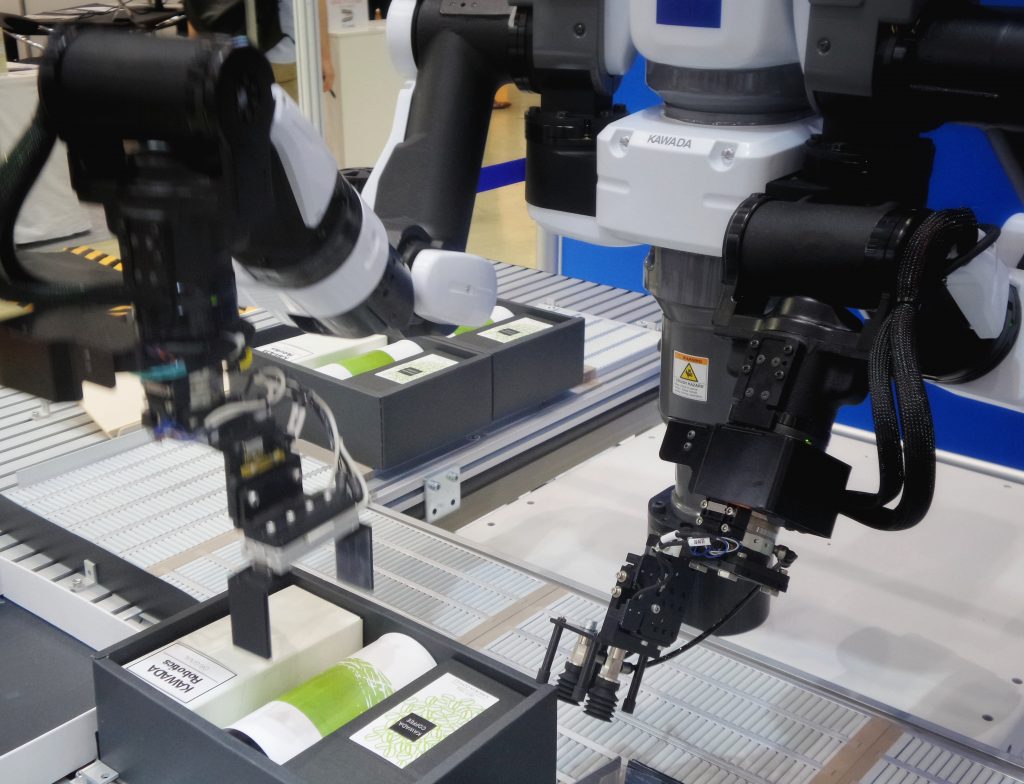
Technology. It needs no introduction. For a little less than a half-century, we have been surrounded by huge leaps taking place in this field, be it the development of the first computer, or the first PC or the mobile phone or the smartphone, you name it. Today we live in an age where the size of the world has considerably reduced just because of the advents in technology. Travelling time has become lesser, communication happens within seconds and all of this happens at a reduced cost than what was before.

There is no doubt about the benefits that technology has brought along with it. We have become more efficient at doing almost anything. Automated robots now line up the factories of BMW or Mercedes for example and on the other hand, we can contact whoever we want using either social media or calling them up on our phones. Air travel is soon going to be automated with most parts of the industry already headed that way with the advent of the autopilot and more recently the autonomous drones. Automated cars are also more or less a reality with Tesla being the first name I can remember in this regard. Calls can now be taken by AI-powered bots who react just as human beings do or even better as demonstrated by Google Duplex. Algorithmic trading has taken its share of investors delivering efficient profits with no human interference necessary. We know and can see that a lot of things that have and will continue to change in almost all the fields for better in the coming future.

But all of this is not without its own set of problems. Absolute privacy has become a thing of the past. Almost every online service that we use requires personal details to be filled up and inevitably this has led to problems such as credit card fraud, unauthorized usage of personal data in various inputs related to marketing tools leading to a lot of spams as well as areas such as personal espionage. People born after the 2000s also have become more averse to outdoor activities, preferring to instead play online games on their mobile phones or laptops or tablets. This leads to an unprecedented number of cases of obesity, diabetes and other such diseases which we see today among the youth population. People don’t want to go out and meet others, preferring to stick instead to chat rooms, social media groups, etc where the latter is more of a complement than a substitute for the former. More and more cases of mental disorders such as depression, anxiety, etc. are becoming common and some research points the cause to the advent of technology and conclusive research on this is still underway.

What about education? Education is probably the most important aspects of human society as this is how we transfer the knowledge to future generations. Just as genetics define and shape the physical characteristics of humans for future generations, education defines and shapes the knowledge-related advancements of the coming generations. Better education systems in place almost always generate better results for the whole of the concerned society.
Education has been a constantly evolving sector. In the ancient times, we know of certain great teachers such as the well-known philosopher Aristotle who was the teacher of Alexander the Great perhaps one of the best general to have ever lived, who himself was a student of the great philosopher Plato. Teachers back then were prominent members of society who were sought out for proficiency in their field. No such thing as a school where everyone could attend existed during that time. Most of the teaching happened either from parent to offspring or in places like guilds or through apprenticeships.

This was the status quo for a long time until the last century or two. This is the period when there was a dramatic shift in how education was delivered. With the coming of the industrial age and along with mass production, education shifted to a similar mechanism where everything was done en masse. Schools, colleges and universities started sprawling everywhere to provide education in a very standardized format to large groups of students. This changed the entire dynamics of education as we know it and led to very little distinctions in the education that students received. Gone were the days of one to one hands-on training or people seeking out the most proficient in their field to go study from. In certain countries, the education system was rigidly divided into certain sectors like science, commerce and arts. Students could no longer select only subjects they had an interest in and had to study extra subjects where they had no interest in. A person who wanted to do only physics could not do so without learning chemistry, or biology or without learning math. Traditional classroom-based education then has its own set of problems. Inflexibility, rigidity, standardization, etc which may have served well during the industrial age, but which I believe does not hold during the current digital age. Today, in an age where the most adaptable and flexible are the only ones who survive, education must also reflect this trend.
Despite all the prowess that technology has accomplished in other fields, it has been slow to grow in the educational sector. Nothing much has changed in terms of classroom teaching whereby everyone still goes to school to learn, albeit maybe small improvements such as smart boards or projectors. Projects like “Khan Academy” are becoming popular but are ages away from being the norm.

Lately, specialized education for the working public has taken improved significantly. Big universities now provide executive education online for the benefit of everyone. This means that to get the requisite quality education from a reputable university, there is no need to visit the premises which instead can now be done from the comfort of one’s home. This is a remarkable change in the approach to education. Platforms like Coursera and Udemy now offer lots of online courses, not to mention the number of tutors who teach online on their own Youtube channels. In such an environment, the best teachers will attract the most number of students from their field of expertise and this leads us in a way to the ancient method of education whereby pupils search and learn from the best in their respective field.
Today, a person who had no formal training in programming could become a programmer or a person with no idea how management works could do an online course on management to learn the ropes. This is only the beginning of the huge improvements that are forthcoming in the field of education with the help of technology. The journey ahead is one that will change education as we know it.
We at Leap are very excited about the ongoing changes and would love to be part of it. As a result, we have decided to launch a series of online courses on subjects in which we have expertise. Please check them out on our Youtube channel and support us on this journey together. We want to hear your thoughts and see if we can improve on the same.
